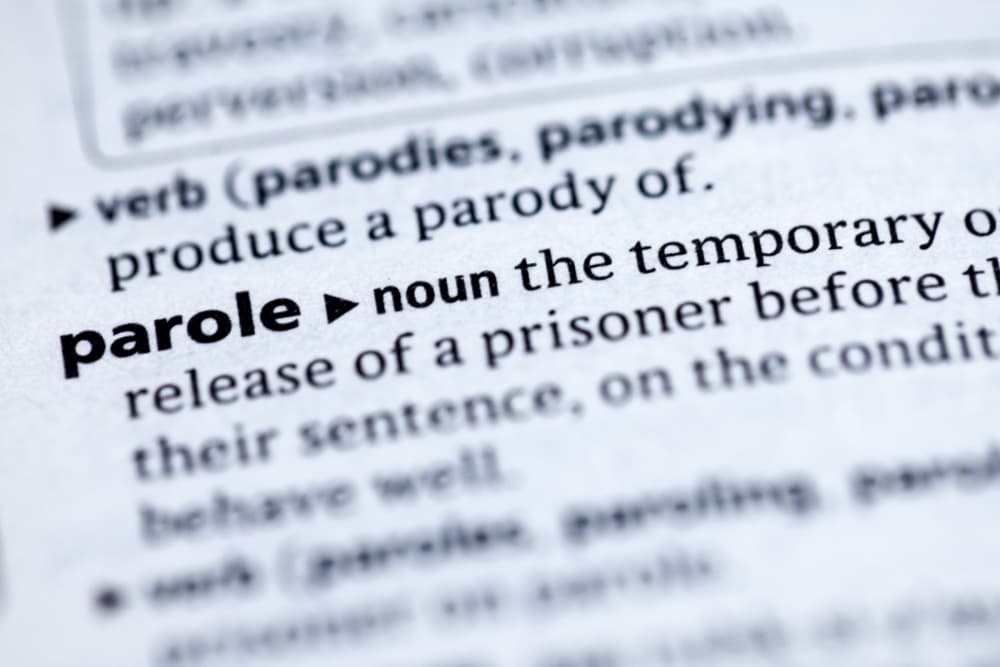Facing a requirement to register as a sex offender can be a challenging and sensitive situation. Understanding the legal responsibilities and potential consequences of failing to comply with registration requirements is important. This blog post will provide transparent information about what can happen if someone fails to register as a sex offender, highlighting the importance of adhering to legal obligations. Contact a sex crimes lawyer for further assistance.
What is Sex Offender Registration?
Sex offender registration is a legal requirement in many jurisdictions for individuals convicted of certain sex-related crimes. The purpose of this registry is to assist law enforcement in tracking and monitoring individuals convicted of these offenses. It’s a preventative measure to protect the community and support law enforcement efforts.
Why Registration is Mandatory
At its core, the sex offender registration process serves several purposes. Firstly, it provides law enforcement agencies with crucial information about individuals who have been convicted of sex-related crimes. This information typically includes the offender’s identity, current residence, place of employment, and details of the offense.
Access to this data enables law enforcement to monitor these individuals more effectively. It’s not just about knowing where they live or work; it’s about understanding their patterns, behaviors, and potential risks they may pose to the community.
Also, registration facilitates communication and coordination among law enforcement agencies. In an increasingly mobile society, where people frequently move between jurisdictions, it’s essential that law enforcement agencies can track the movements of registered sex offenders. This inter-agency collaboration ensures that an offender’s change in location doesn’t result in a lapse of monitoring.
Another key aspect of mandatory registration is its role in community awareness and protection. Many jurisdictions have provisions that allow for certain information about registered sex offenders to be made public. This public accessibility is intended to inform community members about potential risks in their vicinity. However, this aspect is carefully balanced with the rights of the registered individuals, ensuring that the dissemination of information is legally compliant and respectful of privacy considerations to a reasonable extent.
The requirement to register also plays a role in the offenders’ rehabilitation and reintegration process. It can act as a deterrent against reoffending, as registered offenders know they are under closer scrutiny. This heightened awareness can encourage compliance with the law and adherence to the terms of their release, whether that’s parole, probation, or unconditional release after serving their sentence.
The registration process often goes hand-in-hand with other community safety measures. For example, registered offenders may be subject to certain restrictions, such as where they can live or work or access places frequented by children. Authorities design these restrictions not just to protect potential victims but also to minimize the chances of offenders finding themselves in situations that can lead to reoffending.
It’s also worth noting that the requirement to register as a sex offender is not a punishment in itself; rather, it is a regulatory measure. The legal system distinguishes between punitive actions, which are designed to penalize, and regulatory actions, which are meant to protect the public and manage risks. While it undoubtedly significantly impacts the lives of those required to register, it is framed within the context of public safety rather than additional punishment.
Legal Penalties
Failing to register as a sex offender is a serious offense and can lead to severe legal consequences. Depending on the jurisdiction, this can include:
Additional Criminal Charges

When an individual fails to register as a sex offender, this non-compliance itself is considered a serious legal violation. This breach of legal duty can result in additional criminal charges, separate and distinct from the original offense that necessitated registration. These charges are not merely administrative penalties but are criminal, reflecting the gravity of the failure to adhere to registration requirements.
The specifics of these additional charges can vary depending on the jurisdiction and the circumstances of the non-compliance. In some cases, the act of failing to register is classified as a felony, which is a serious criminal offense. The severity of the charge often depends on factors such as the nature of the original offense, the offender’s criminal history, and the length of time the individual was out of compliance.
Being charged with this new offense means going through the criminal justice process again, including arrest, arraignment, and possibly a trial. Conviction of this charge can lead to a criminal record that is separate from the original sex offense, further impacting the individual’s future, particularly in terms of employment opportunities, social relationships, and community standing.
Increased Sentencing
The consequences of being convicted for failing to register can be severe. If an individual is found guilty of this offense, they may face increased sentencing. This means that in addition to any penalties for the original sex offense, the individual will also face additional penalties for the failure to register.
The nature of this increased sentencing can take several forms. In some jurisdictions, the law specifies mandatory minimum sentences for failing to register, which can mean a significant amount of time in jail or prison.
Additionally, the sentence for failing to register can be added consecutively to the sentence for the original offense, significantly extending the time the individual spends under correctional supervision.
The impact of this increased sentence can extend beyond time spent in incarceration. It can also mean stricter terms of probation or parole once the individual is released. These terms might include more frequent check-ins with a probation officer, mandatory counseling or treatment programs, and increased restrictions on movement and activities. These stricter conditions not only make the period of probation or parole more challenging but also increase the chances of a violation, which can lead to further legal consequences.
Fines
Apart from the possibility of additional jail time and stricter probation terms, failing to register as a sex offender can also lead to substantial financial penalties. These fines are imposed as a further measure to underscore the seriousness of the offense and to act as a deterrent against non-compliance.
These fines can be considerable, reflecting the severity with which the legal system views the failure to register. For many people, these fines are a significant financial burden. The imposition of fines can be especially challenging for someone who might already be facing economic difficulties, which is not uncommon among individuals with criminal records.
These financial penalties are not just a one-time cost. Failure to pay fines can lead to additional legal complications. In some cases, non-payment can result in further legal action or sanctions, such as income garnishment or liens on property. This financial strain can also hamper the individual’s rehabilitation and reintegration efforts, as they may struggle to meet their basic needs while also trying to comply with the financial penalties imposed by the court.
Impact on Probation or Parole
For individuals on probation or parole, failing to register can lead to:
Revocation of Probation or Parole

The revocation of probation or parole is a significant consequence for failing to register as a sex offender. This action means that the individual has violated the terms of their conditional release. As a result, they may be required to return to prison to serve the remainder of their original sentence or, in some cases, an extended sentence.
Probation and parole are both forms of supervised release that allow an individual to live in the community under certain conditions after serving part of their sentence. These conditions are designed to help integrate the individual into society while managing risk and protecting public safety. When someone is required to register as a sex offender and fails to do so, it is seen as a breach of these conditions.
Revocation typically involves a hearing where the state presents evidence of the violation. If the violation is proven, the consequences are quite serious. The individual is not only dealing with the repercussions of their original offense but now faces the added burden of a probation or parole violation. This can lead to a loss of the freedom and opportunities that come with living in the community, and it can significantly set back the individual’s rehabilitation and reintegration efforts.
Returning to prison can have a profound impact on the person’s life. It disrupts any employment or education they are pursuing, strains family and social relationships, and can exacerbate mental health issues. This consequence underscores the importance of adhering to all probation or parole conditions, including sex offender registration.
Additional Supervision
If an individual fails to register as a sex offender but does not have their probation or parole revoked, they may still face increased supervision. This heightened level of monitoring is intended to ensure compliance with the law and to protect the community.
Increased supervision can take several forms, depending on the individual’s circumstances and the nature of their offense. Typically, it involves more frequent check-ins with a probation or parole officer. These check-ins can be in person, via telephone, or even through electronic monitoring. The frequency and method are determined based on the perceived level of risk the individual poses and their history of compliance.
In addition to more frequent check-ins, the individual may face stricter conditions as part of their probation or parole. These conditions can include restrictions on where they can live and work, curfews, or prohibitions on visiting certain places or interacting with certain people. They might also be required to attend counseling sessions or treatment programs more frequently.
Electronic monitoring, such as ankle bracelets, is another tool the state may use to increase supervision. This allows probation or parole officers to monitor the individual’s movements and ensure they adhere to any geographical restrictions.
This additional supervision serves multiple purposes. It helps to manage the individual’s risk to the community, ensures greater compliance with the law, and can assist in the individual’s rehabilitation by providing more structure and oversight. However, it also means a greater intrusion into the individual’s life and less freedom than standard probation or parole terms.
Increased supervision can make finding and maintaining employment more challenging, as the individual must navigate the additional restrictions and requirements. It can also strain personal relationships and complicate reintegration into the community. These challenges highlight the importance of fulfilling all requirements of probation or parole, including sex offender registration, to avoid these additional burdens.
Community Impact
Failing to register can also have significant social consequences, including:
Loss of Trust

The failure to register as a sex offender can lead to a significant loss of trust within the community, a factor that profoundly affects social reintegration. Trust is a fundamental component of social relationships and community dynamics. When an individual is known to have committed a sex offense, there is already a degree of wariness or apprehension from the community. This sense of caution is further heightened when the individual fails to comply with legal requirements such as registration, which are put in place to ensure community safety and oversight.
This loss of trust manifests in various ways. Neighbors, local businesses, and community members may be less welcoming or more suspicious, making it challenging for the individual to feel a sense of belonging or acceptance. This can be particularly disheartening for those actively working towards rehabilitation and seeking to make positive changes in their lives.
Additionally, the individual may struggle to participate in community activities or events. They might face exclusion from neighborhood gatherings, public events, or volunteer opportunities, which are important for building connections and a support network. Such exclusion not only impacts their social life but can also have psychological effects, potentially leading to feelings of isolation, depression, or a sense of being stigmatized.
The loss of trust extends beyond just personal relationships. It can impact the individual’s interactions with institutions like schools, landlords, and local businesses. For example, parents in the community might express concern about a non-compliant sex offender living nearby, which can lead to further isolation and scrutiny.
The loss of trust resulting from not registering as a sex offender creates a significant barrier to social reintegration. It undermines efforts to rebuild a life post-conviction and can impede the individual’s progress in rehabilitation and becoming a contributing member of society.
Employment Challenges
Failing to register as a sex offender can complicate the job search process, as many employers conduct background checks. Employment is a huge factor in the reintegration process, providing financial stability and a sense of purpose and normalcy. However, non-compliance with registration requirements can raise red flags for potential employers.
During the hiring process, employers often perform background checks to assess the suitability of candidates. When these checks reveal a history of sexual offenses, it’s already a point of concern. Discovering that the candidate has failed to comply with registration requirements can exacerbate these concerns, making the employer question the individual’s reliability, trustworthiness, and commitment to legal obligations.
Some professions have strict regulations regarding hiring individuals with criminal backgrounds, particularly those involving sexual offenses. Non-compliance with registration can further limit the range of job opportunities available. Positions that involve working with vulnerable populations, such as children, the elderly, or individuals with disabilities, are often off-limits. Similarly, jobs that require a high degree of trust and integrity might be harder to secure.
The challenges extend beyond just obtaining a job. Non-compliance can also affect job retention. If an individual’s failure to register becomes known after they are employed, it can lead to termination, especially if the job involves specific legal or ethical requirements regarding employee conduct.
These employment challenges can have a cascading effect on other aspects of the individual’s life. They may struggle to secure housing, pay for basic necessities, or support their families without stable employment. This instability can hinder their overall rehabilitation and increase the likelihood of recidivism.
Contact a Criminal Defense Lawyer Today

Failing to register as a sex offender carries serious consequences, affecting not only legal standing but also social, employment, and personal aspects of life. Understanding and fulfilling these legal obligations is imperative to avoid further complications.
If you’re facing challenges with sex offender registration, seeking professional legal advice can provide the guidance and support needed to handle this complex process. Compliance with the law serves your best interests and contributes to the community’s safety and well-being. Ohio’s criminal defense law firm is always ready to help.


